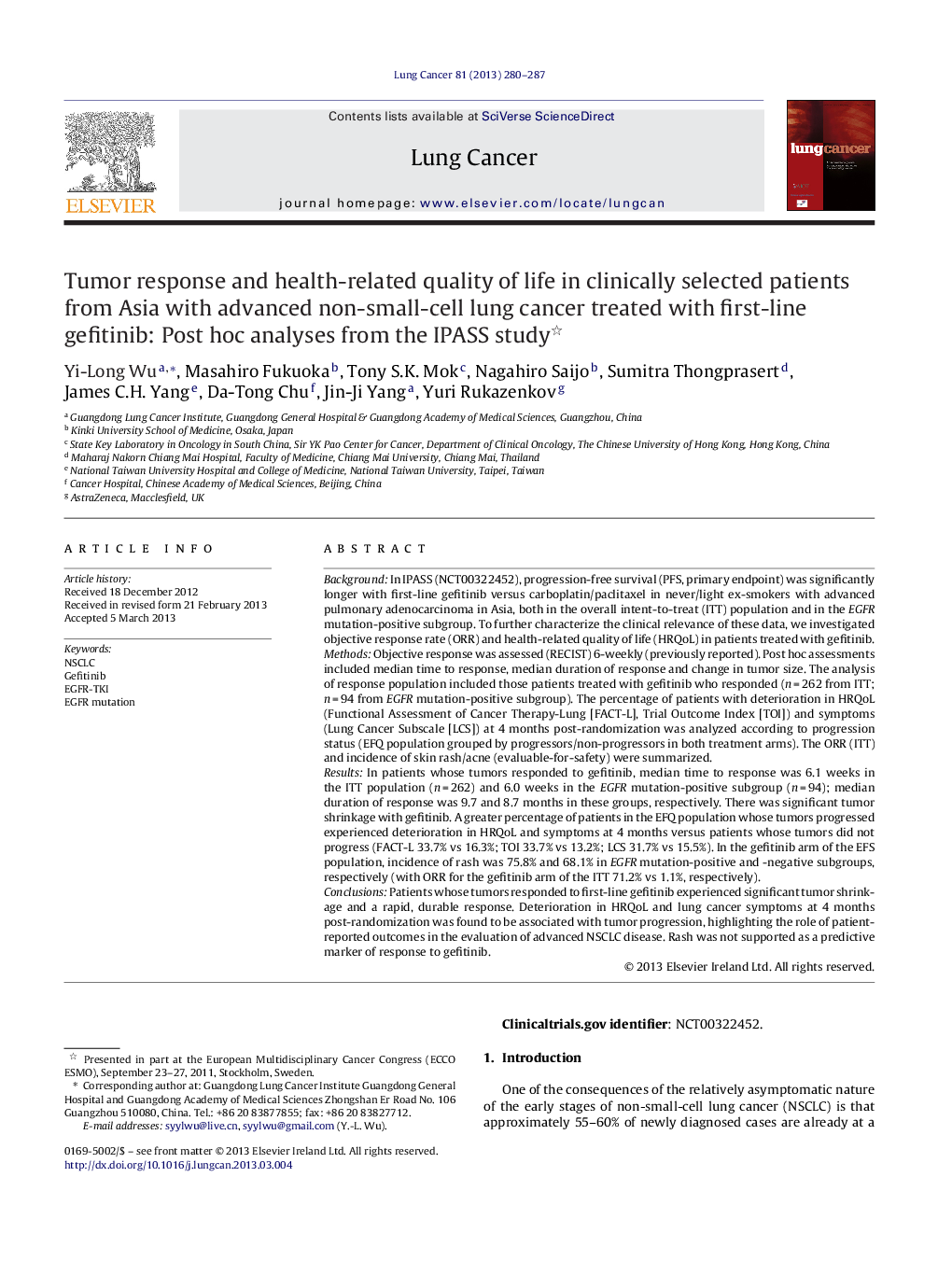| کد مقاله | کد نشریه | سال انتشار | مقاله انگلیسی | نسخه تمام متن |
|---|---|---|---|---|
| 2141113 | 1088278 | 2013 | 8 صفحه PDF | دانلود رایگان |

BackgroundIn IPASS (NCT00322452), progression-free survival (PFS, primary endpoint) was significantly longer with first-line gefitinib versus carboplatin/paclitaxel in never/light ex-smokers with advanced pulmonary adenocarcinoma in Asia, both in the overall intent-to-treat (ITT) population and in the EGFR mutation-positive subgroup. To further characterize the clinical relevance of these data, we investigated objective response rate (ORR) and health-related quality of life (HRQoL) in patients treated with gefitinib.MethodsObjective response was assessed (RECIST) 6-weekly (previously reported). Post hoc assessments included median time to response, median duration of response and change in tumor size. The analysis of response population included those patients treated with gefitinib who responded (n = 262 from ITT; n = 94 from EGFR mutation-positive subgroup). The percentage of patients with deterioration in HRQoL (Functional Assessment of Cancer Therapy-Lung [FACT-L], Trial Outcome Index [TOI]) and symptoms (Lung Cancer Subscale [LCS]) at 4 months post-randomization was analyzed according to progression status (EFQ population grouped by progressors/non-progressors in both treatment arms). The ORR (ITT) and incidence of skin rash/acne (evaluable-for-safety) were summarized.ResultsIn patients whose tumors responded to gefitinib, median time to response was 6.1 weeks in the ITT population (n = 262) and 6.0 weeks in the EGFR mutation-positive subgroup (n = 94); median duration of response was 9.7 and 8.7 months in these groups, respectively. There was significant tumor shrinkage with gefitinib. A greater percentage of patients in the EFQ population whose tumors progressed experienced deterioration in HRQoL and symptoms at 4 months versus patients whose tumors did not progress (FACT-L 33.7% vs 16.3%; TOI 33.7% vs 13.2%; LCS 31.7% vs 15.5%). In the gefitinib arm of the EFS population, incidence of rash was 75.8% and 68.1% in EGFR mutation-positive and -negative subgroups, respectively (with ORR for the gefitinib arm of the ITT 71.2% vs 1.1%, respectively).ConclusionsPatients whose tumors responded to first-line gefitinib experienced significant tumor shrinkage and a rapid, durable response. Deterioration in HRQoL and lung cancer symptoms at 4 months post-randomization was found to be associated with tumor progression, highlighting the role of patient-reported outcomes in the evaluation of advanced NSCLC disease. Rash was not supported as a predictive marker of response to gefitinib.
Journal: Lung Cancer - Volume 81, Issue 2, August 2013, Pages 280–287